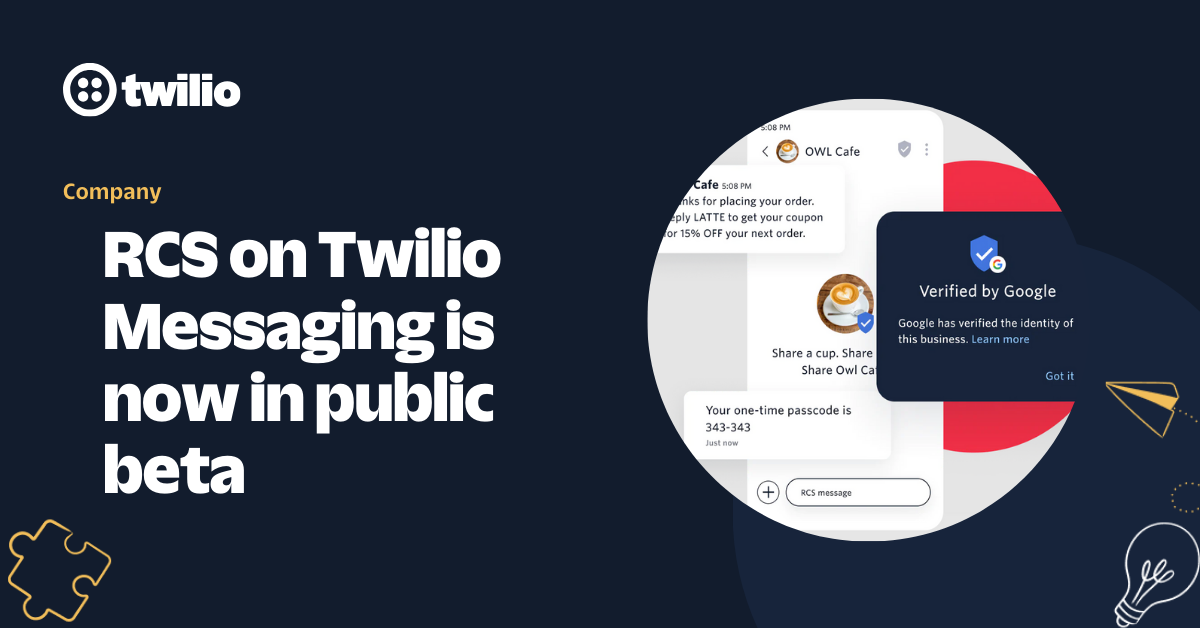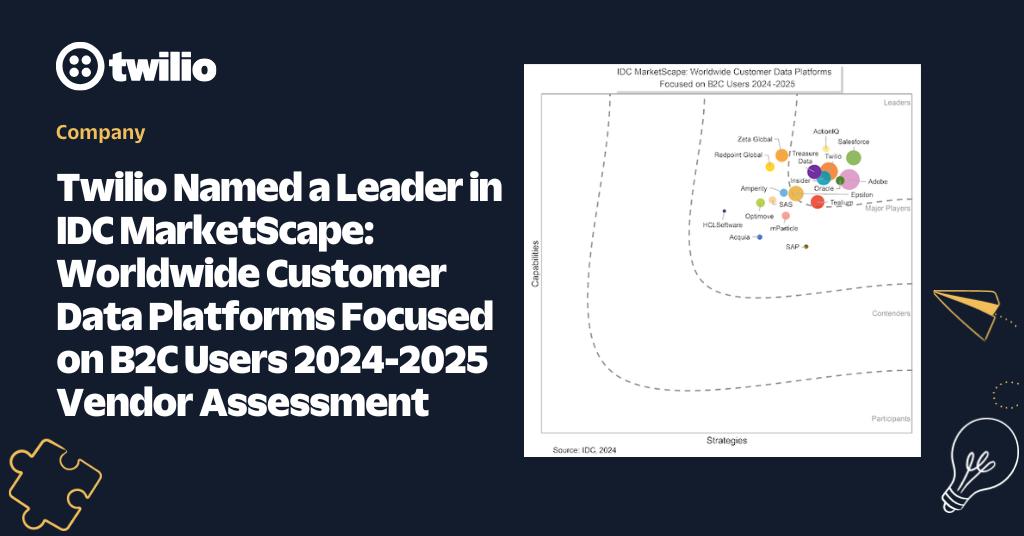-
Deliver Human-Like AI Voice Experiences with ConversationRelayJason Spulak
-
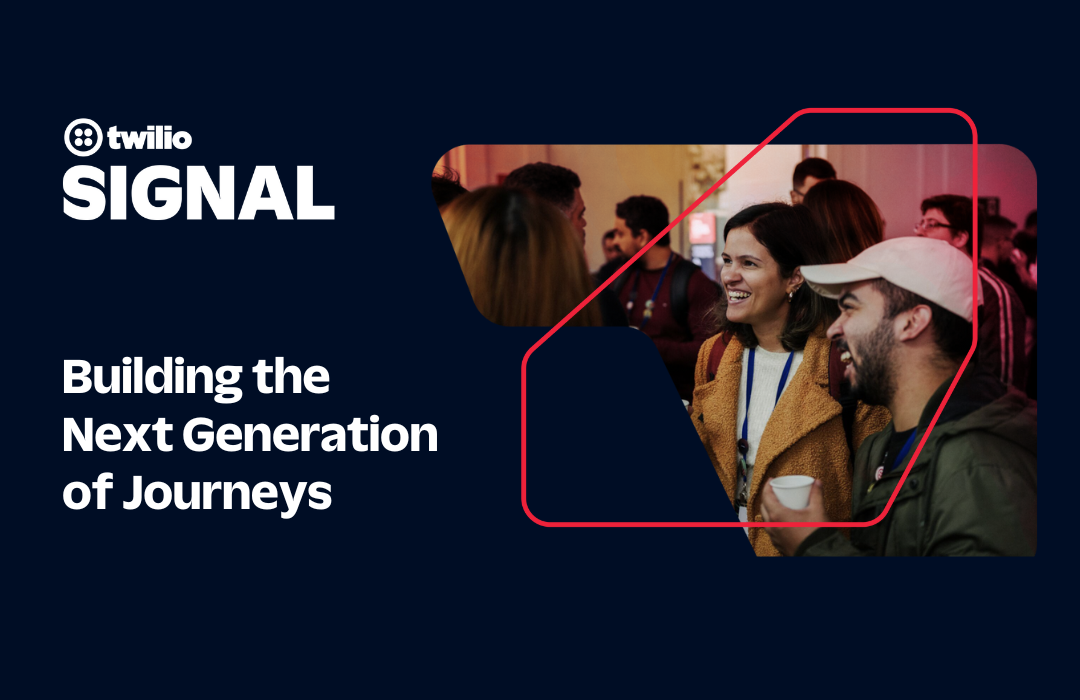 Building the Next Generation of JourneysMegan DeGruttola
Building the Next Generation of JourneysMegan DeGruttola -
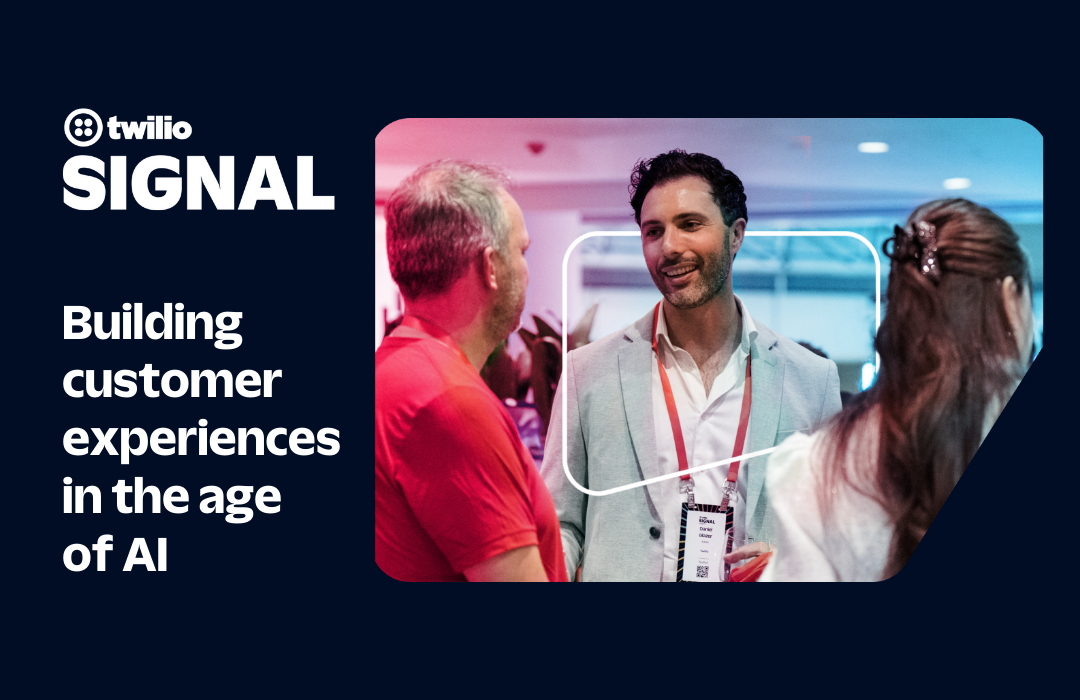 Twilio SIGNAL 2025: Building customer experiences in the age of AIDisha Rustogi
Twilio SIGNAL 2025: Building customer experiences in the age of AIDisha Rustogi -
 Introducing Conversational Intelligence: Unlock unified AI understanding across Voice, Messaging & Virtual AgentsJeff Eiden
Introducing Conversational Intelligence: Unlock unified AI understanding across Voice, Messaging & Virtual AgentsJeff Eiden -
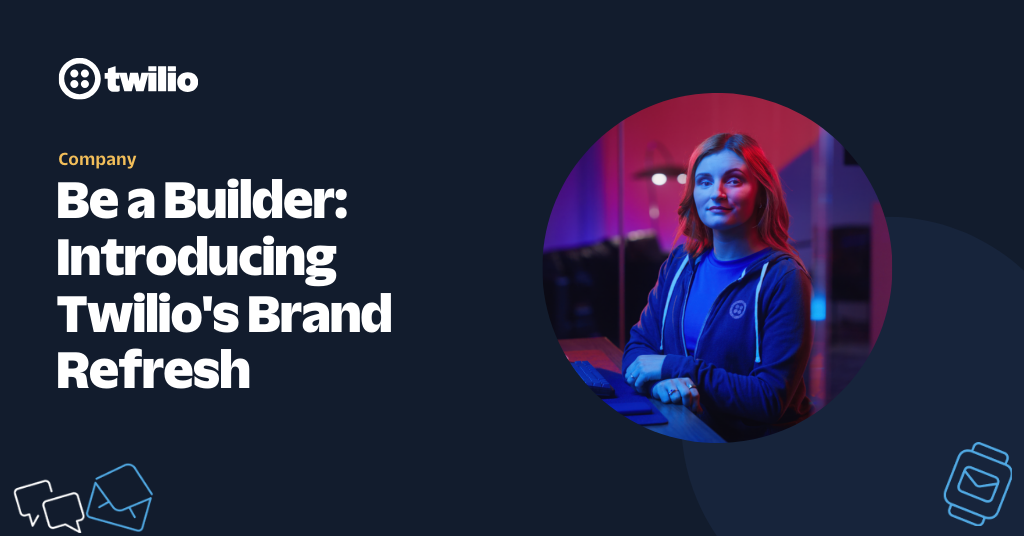 Be a Builder: Introducing Twilio's brand refreshAdam Morgan
Be a Builder: Introducing Twilio's brand refreshAdam Morgan -
 Seven reasons you should attend SIGNAL 2025
Seven reasons you should attend SIGNAL 2025 -
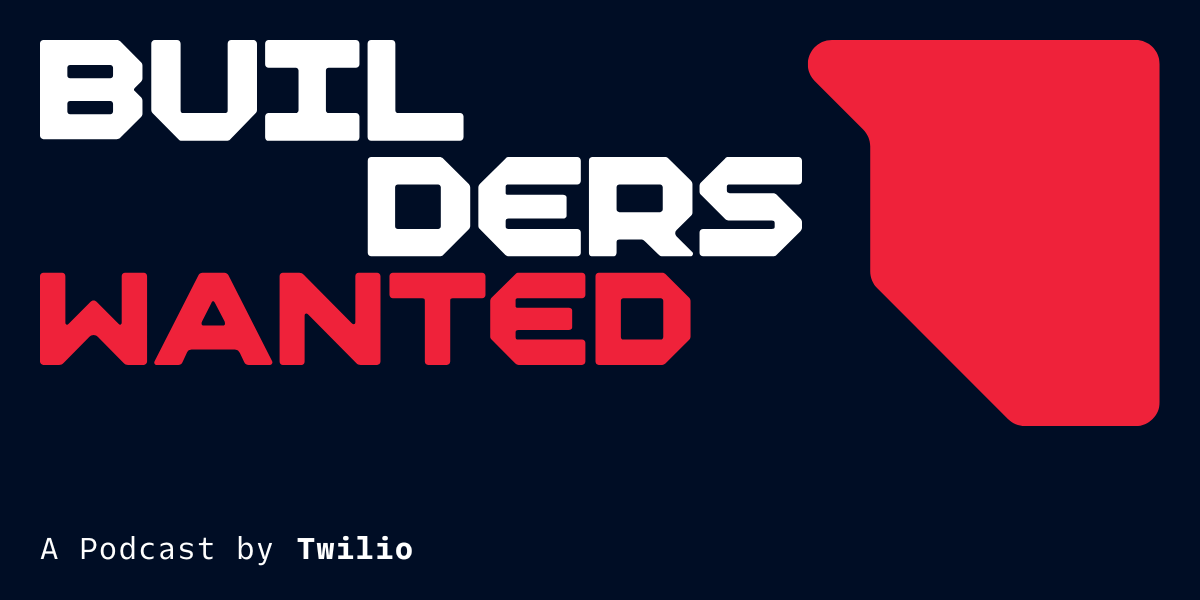 Introducing Builders Wanted, a new Twilio podcastTwilio
Introducing Builders Wanted, a new Twilio podcastTwilio -
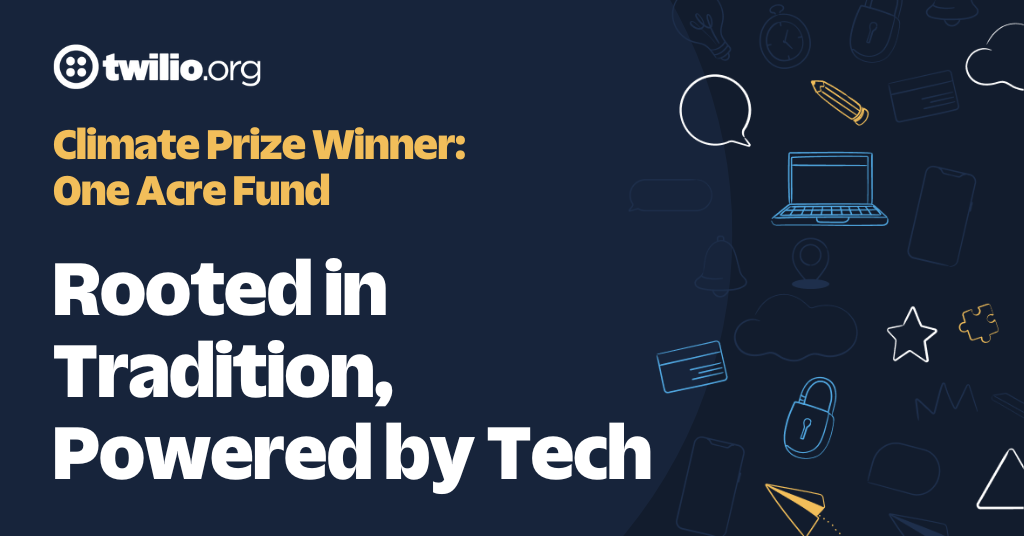 Rooted in Tradition, Powered by Tech: One Acre Fund’s Digital TransformationClaire FitzGerald
Rooted in Tradition, Powered by Tech: One Acre Fund’s Digital TransformationClaire FitzGerald -
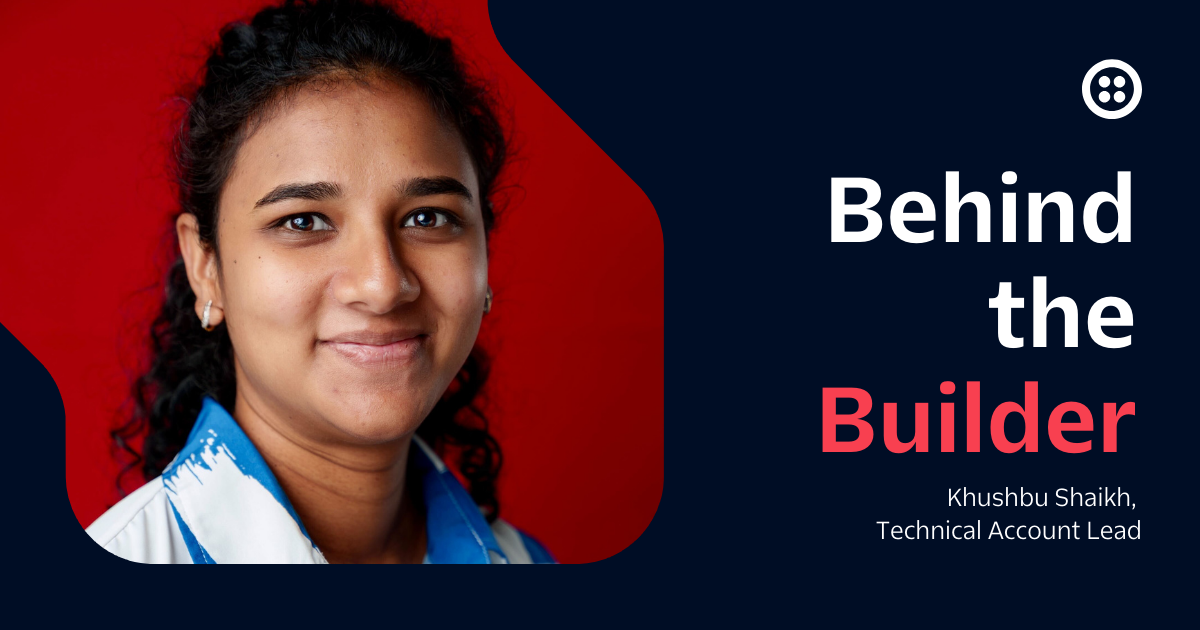 Behind the Builder: Khushbu Shaikh, Technical Account LeadTwilio Employer Brand Team
Behind the Builder: Khushbu Shaikh, Technical Account LeadTwilio Employer Brand Team
Sign up for the Digital Dispatch
Subscribe to Twilio's Digital Dispatch, a monthly email roundup of the best digital engagement insights from across Twilio.
All set! Check your email.
Free trial
Start building with Twilio for free
Sign up and start building your ideal customer engagement experience today.



